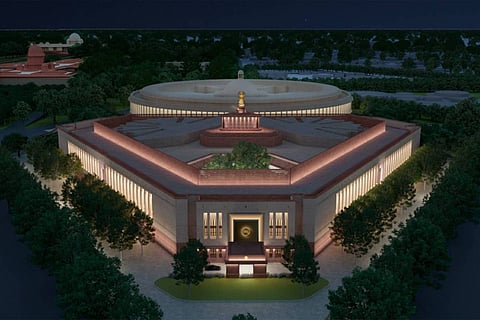

After several days of speculation, the Women’s Reservation Bill was tabled on Tuesday, September 19. The Constitution (128th Amendment) Bill 2023 seeks to provide one-third (33%) of the total seats in the Lok Sabha, state Assemblies, and in the Legislative Assembly of the National Capital Territory of Delhi. This will also include a one-third sub-reservation for women among the seats reserved for Scheduled Castes and Scheduled Tribes.
The Bill appears as a welcome move, having come at the end of more than three decades of debates over the reservation of women in Parliament and state Assemblies. However, it includes a clause that says that it will be implemented only once delimitation of constituencies is undertaken.
The delimitation, the Bill says, should be undertaken according to the data found in the first census conducted after the Amendment becomes law. This means that the upcoming general elections in 2024 or the various state Assembly elections lined up for the coming months will not see seats reserved for women.
In March this year, the Union Minister of Law and Justice Kiren Rijiju had said in the Rajya Sabha that the next delimitation exercise may be conducted after the first census to be taken after the year 2026, as per existing law. He was referring to the delimitation freeze of 25 years prescribed by the 2001 Constitution (91st) Amendment Act. This means that Lok Sabha seats may possibly be reserved for women from the 2029 general elections onwards or later depending on when the census and delimitation exercise is carried out. Many argue that the BJP-led Union government hopes to reap the benefits of fulfilling its poll promises in the upcoming elections without forcing existing male leaders to cede their seats.
This idea of expanding the overall size of legislatures before granting reservations to women, so as to preserve the number of unreserved seats, was one of the suggestions considered by the United Progressive Alliance government in 2005. It was part of three considerations that the UPA arrived at after the then Congress president Sonia Gandhi and then Prime Minister Manmohan Singh conducted consultations with leaders of various political parties.
The new Bill says that the rotation of the reserved seats will be undertaken after each subsequent delimitation exercise. Moreover, reservation for women will last for 15 years after the Bill becomes law, and can be further extended by the Parliament. The Lok Sabha, state Assemblies, and the Legislative Assembly of the National Capital Territory of Delhi existing at the time of commencement of reservation will not be affected by the law. Instead, reservation for women will commence upon the dissolution of the existing legislatures.